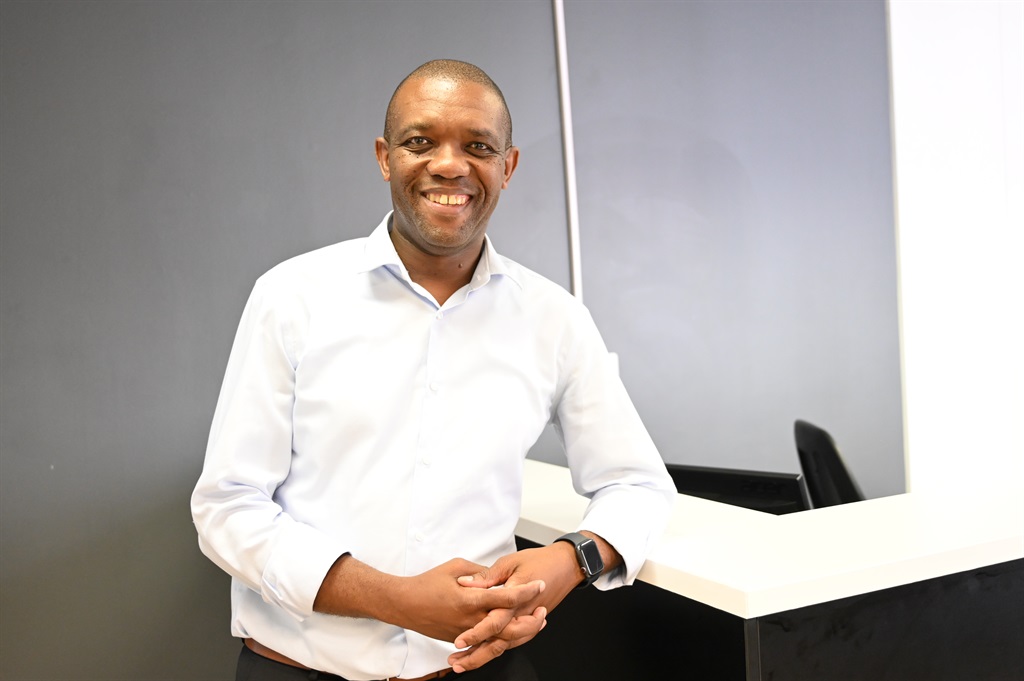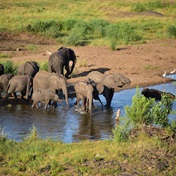WITH the countdown to the national elections steadily ticking along, SNL24 brings you an election series to help registered voters better understand political leaders and what they stand for.
A re Buwe: Is this our Uhuru? will give you candid conversations with politicians produced by the youth, for the youth, as more than five million registered young people under 30 will head to the polls this year.
We kick things off with one of the newest parties on the block, RISE Mzansi.
Our host, Zandile Khumalo, sat down with party leader Songezo Zibi at their offices in Parktown, Joburg, to understand what they have to offer, helping you grasp their visions, policies and strategies.
So, who would Zibi choose to survive the zombie apocalypse with? It seemed like a tricky question for the leader. “This is not fair,” he said, letting out a deep laugh before expressing how hard the choice was as he has a wife and three children.
But his ultimate answer was his wife, best friend and comedian Trevor Noah.
Jokes aside, we wanted to know who Zibi is and what led him to leave his life in newsrooms for the political battlefield:
Who is Songezo Zibi:
Q | Your political journey began at a very youngage by the Pan-Africanist student organisation. How did that shape your understanding of the issues in South Africa?
A | When I got to boarding school, it depended on which party was dominant in your dorm. And in my dorm was the PAC. So that's how I got into active politics within the student context.
I was 14 years old, but it kind of made me aware, especially of the concept of non-racialism, differently because it used to say a lot about … I mean, the slogan was one settler, one bullet. But then also African was described as anyone who feels they belong to and they agree with the liberation of Africa, whether they are black or white. It was a challenging concept intellectually to grapple with. And that stood out for me.
Q | Would you say those experiences made you the person you are now?
A | No, my life in the village was kind of short. This was 1991, 92, 93. By 94, the PAC was already beginning to fall apart. But the things that have shaped my politics the most have been personal experiences from an even younger age. Yeah, from when I was seven. And I would say that's been 80% of the political influence or 70% of the political influence.
ALSO READ: Parties all geared up for 29 May!
Q | How have you played your role and been a representation in your community?
A | The first thing is that we kind of all migrant workers, right, in South Africa. And I have literally been away from home since I was 14. And to be honest with you, and so the contribution [to the community] is literally kind of limited to mentoring in December when we are home. And if you're lucky, you get to be home sort of at Easter time.
The one thing that I'm particularly passionate about is offender rehabilitation because a lot of young people – including my younger and older cousins are in prison.
I think a lot about what life is going to be for them when they come out of prison, not just for them but for others as well. And that's what I'm kind of working with my cousins on because one is coming out on parole hopefully next month, and that rehabilitation plan becomes the rehabilitation plan of others beginning in my village because, yeah, it's a big problem.
‘Human rights abuses in Gaza’:
Q | On Gaza, you said: “It'sa human rights issue. Regardless of religious elements that have emergedin this conflict. Yes, it is a matter of human rights abuse.” In your view, what is the importance of international diplomacy for South Africa?
A | I think, as we learn from our history, in the end, most conflicts are resolved through diplomacy. That's just the nature of how things end. The frustrating thing about the Israel-Palestine issue is that diplomacy is dead, and it makes it very frustrating, especially for a political party like ours.
We are small in South Africa. We can issue a statement. Frankly, the people involved in the thing don’t give a damn. Okay? And yet you're expected to have an opinion. It's incredibly frustrating. However, it's important that, as South Africans, we develop a deep human rights culture that it doesn't matter whether you're Israeli or Palestinian.
If you abuse human rights, we must be able to speak out against it. So that makes it possible for you to see, for instance, and this is a very long conflict, so you can always have a contest. But let's start on October 7th. You say the killing of people by Hamas is not right, and the bombing of the people of Gaza to little pieces is also wrong. What does a public discourse see? There's only one good side and one bad side.
I think the victims who number in the millions, all they know is that like I just want the whole thing to stop, and I want to know my life and diplomacy is failing and people are dying. People are dying, and you can't live with that kind of situation.
Africa’s fears
Q | Taking it back to your manifesto, you'vehad almost ayear to listen to discussions and to go into the field to understand what people are complaining about. From the research that you'vedone and the number of people that you'vespoken to, what has echoed on the streets to be the main pressing issue that people of our country are facing, and the youth is facing?
A | I'll just mention just two things. The first one is that people don't trust politicians and political parties. The first thing they say to is that ‘I don't want to talk to you’.
That's a problem because it means people can't participate in the democracy meaningfully and be able to, you know, create the change that they want to see. It's a big problem.
ALSO READ: Nasi Ispanifor ‘votes’ slammed!
The second thing I would say is safety. People feel very unsafe and unsafe in many ways right? They feel insecure. Let me say it like that. Insecure and unsafe. It's either the fear of violence or the fear of hunger. These two fears are there to biggest fears that Africans have.
Watch the rest of the interview above:
Don’tforget to register to SNL24 and get the best of Daily Sun, Drum, True Love, Soccer Laduma and KickOff.













